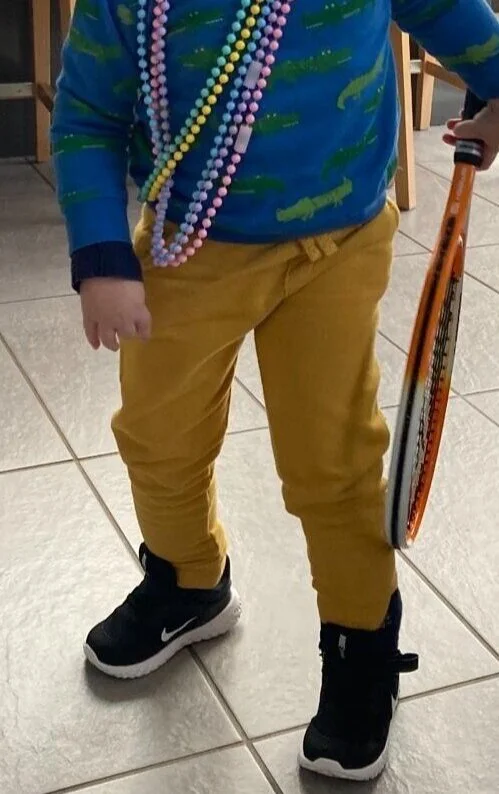Putting people in your plan
For many, this year has felt like a long, hard grind, but there have been moments of positivity. For example my nephew, Rory, has loved his new trainers! He had a stroke 3 years ago and learnt to walk in lockdown. His Nike trainers are adapted (by design) to take his leg splints and he regularly uses zoom to show me his new ‘moves’. This is always a highlight of my week.
Rory rocking his Nike Flyease trainers with some Serena Williams style! They are adaptive by design, so his leg splints fit and they zip up at the back of the heel for ease
My moment of surprise came from learning about the commitment made by Marks & Spencer and Nike to the physical obstacles that many people face through their adaptive clothing and shoe ranges (there may be other brands but these are the two I’m familiar with). I was delighted to learn that both have a range of products that are specifically designed for those with additional needs.
Marks & Spencer
Their range of adaptive clothing covers clothing for babies, children and several home items. For example, in the school uniform section, it reads “School uniform specially designed for children with sensory issues or those who just need a little extra help when dressing. We removed fiddly zips / buttons and itchy internal labels to make dressing easier.”
Nike
Nike have a range called Flyease. Rory loves his Nike Flyease trainers. They support his leg splints and the design of the trainers means the back of the trainer zips without fuss, enabling him to get his feet and his splints in quickly and easily- which is really important for his regular physio sessions They are priced reasonably too, at £29.
Creating brands and businesses that address human and planetary needs is more important than ever. It’s easy to become focused on creating (and identifying) new volume- led markets, but often, the way to build brand trust, and an emotional connection with citizens is to demonstrate kindness and empathy by providing solutions to the real problems citizens face. Brands aren’t just there to sell things; the best brands are there to address human needs.
These products by M & S and Nike are never going to be best sellers, but for the people who need them, they’re so important.
Brands and businesses must remember that to be truly responsible, fulfilling these small niches can be as important as the larger market opportunities. These niches may not offer a substantial contribution to the financial bottom line, but do deliver huge social value.
Social value may be hard to quantify, but it’s a marker of a truly responsible business. With peer to peer marketing being one of the most trusted endorsements, the positive effects on your brand halo will glisten for years to come. We have to stop measuring business impact in purely financial terms.

